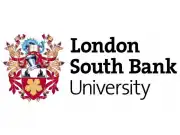Master's programs in Engineering
- Master degree in Engineering
- Advantages of Master's programs in Engineering
- Disadvantages of Master's programs in Engineering
- Popular universities for obtaining a Master's in Engineering
- Admission requirements for Master's programs in Engineering
- Documents for admission to Master's programs in Engineering
- Cost of studying in Master's programs in Engineering
- Scholarships and grants for Master's programs in Engineering
- Career prospects after Master's programs in Engineering
- Is it worth studying in Master's programs in Engineering?
- Frequently Asked Questions

Master of Science - Supply Chain Management
Constructor University - Bremen, GermanyStudents learn data analytics, data engineering, and management skills to manage supply chains. Students will learn how to build and sustain high-performance global logistics systems. The program focuses on data analytics, data engineering, and modern leadership and management. This includes analyzing…

Master of Science - Engineering Management
Arden UniversityWant to develop your engineering management skills? Our CMI-accredited MSc Engineering Management degree explores the most critical areas in modern engineering management while helping you develop leadership abilities.
You'll discover how to impact an organization's structure and success…

Master of Science - Building Surveying
London South Bank University LSBUThe fundamentals of building construction, as well as methods for their long-term upkeep and efficient use, will be covered in this course.
As a building surveyor, your days will never be the same because much of the work is done on-site (it's not just a desk job).
The course is…

Master of Science - Quantity Surveying
London South Bank University LSBUGraduates in the construction industry are encouraged to take this course, which focuses on project feasibility, financing and procurement methods, and financial management of the design and construction process in consulting firms, client organizations, and contracting firms.
Applicants…

Master of Science - Construction Project Management
London South Bank University LSBUGraduates of this accredited postgraduate program can use the skills they learn here to advance their careers in client organizations or consulting.
Aiming professionals get to meet and connect with others in the construction and development industries who have similar goals and aspirations.
You'll…

Master of Science - Civil Engineering
London South Bank University LSBUBuilding structures, transportation, and sanitation are all influenced by civil engineering in some way.
There are numerous uses for it around the world, and many of its skills can be transferred to other industries.
Structures, geotechnics, water, water transportation, computer-aided…

Master of Science - Structural Engineering
London South Bank University LSBUStructures are perhaps the most striking and visible manifestations of mechanical principles that we encounter in our daily lives.
When it comes to the design and construction of everything from homes to bridges and skyscrapers, structural engineers bring together a wide range of expertise,…

Master of Science - Mechanical Engineering
London South Bank University LSBUHelp us build on LSBU's 100-year tradition of engineering instruction.
In addition to developing the research and business skills required by industry, this broad-based course will help you gain a deeper understanding of the core mechanical engineering disciplines.
CAD-CAM capabilities…

Master of Science - Advanced Chemical Engineering
London South Bank University LSBUIn this program, students learn the fundamentals of chemical engineering, including energy, materials and reactions, and project management.
It will equip you with the skills and knowledge you need to work effectively in the chemical engineering sector in the context of modern industry…

Master of Science - Building Services Engineering
London South Bank University LSBUBuilding services engineers help architects and other design team members establish building size, shape, and arrangement. These engineers can also create energy-efficient, long-lasting structures.
Building carbon emissions make for a large amount of greenhouse gas emissions, hence this…
Master degree in Engineering
Master's programs in engineering provide advanced education for professionals seeking to develop their skills in technical and scientific fields. These programs offer knowledge in modern technologies, engineering systems, and project management, enabling students to become experts in their chosen industry.
Education in master's programs in engineering is designed for both graduates of bachelor's programs in related fields and professionals aiming to gain international experience and expand career opportunities. The duration of the programs varies from 1.5 to 2 years for full-time study and up to 3 years for partially online formats.
Master's programs focus on the practical application of knowledge: students study design, modeling, testing, and implementation of engineering solutions. Special attention is also given to developing teamwork skills, project management, and scientific research.
Advantages of Master's programs in Engineering
Choosing a master's program in engineering abroad offers several significant advantages:
- High level of professional training – programs include up-to-date courses in robotics, electronics, mechanics, construction, and IT technologies.
- International experience – studying at foreign universities allows establishing professional contacts worldwide.
- Career prospects – graduates are in demand at major international companies, startups, and research institutes.
- Access to modern laboratories and equipment – many universities provide students with opportunities to work with innovative equipment and participate in real projects.
- Scholarships and financial support – international students can apply for various grants, making education more accessible.
Disadvantages of Master's programs in Engineering
Despite the many advantages, there are also some challenges:
- High cost of education – studying for a master's degree abroad requires significant financial investment.
- Adaptation difficulties – international students face a new culture, language, and educational system.
- Intensive study program – the large volume of practical and theoretical classes can be stressful.
However, these challenges can be overcome:
- To reduce financial burdens, it’s worth researching available scholarships and grants in advance.
- Adaptation becomes easier through participation in language courses and student clubs.
- Planning and time management help manage the intensive schedule and distribute workload evenly.
Popular universities for obtaining a Master's in Engineering
Many universities worldwide offer high-quality master's programs in engineering. Among the most popular:
| University | Country | Program Features |
|---|---|---|
| Massachusetts Institute of Technology (MIT) | USA | Emphasis on research and innovation |
| Colorado State University | USA | Strong engineering school with practical projects |
| Texas State University | USA | Wide range of engineering specialties, support for international students |
| Imperial College London | United Kingdom | Programs with an international focus and access to world-class laboratories |
| Technical University of Munich | Germany | Combination of theoretical knowledge and practical engineering research |
Admission requirements for Master's programs in Engineering
Main admission requirements include:
- A bachelor’s degree in engineering or a related field.
- High academic performance (GPA not lower than 3.0 on the American scale).
- English language proficiency at B2–C1 level (TOEFL, IELTS, or equivalent certificate).
- Letters of recommendation from professors or employers.
- Sometimes, a portfolio of projects or research results is required.
Documents for admission to Master's programs in Engineering
List of standard documents:
- Application Form.
- Bachelor’s degree and transcript of grades.
- English language proficiency certificate (TOEFL, IELTS).
- Letters of recommendation (2–3).
- Statement of Purpose.
- Resume indicating work experience or projects.
- Additionally: portfolio, publications, or certificates from professional courses.
Cost of studying in Master's programs in Engineering
The cost of a master's degree depends on the country, university, and duration of study. Average figures:
| Country | Cost per Year | Additional |
|---|---|---|
| USA | 25,000 – 45,000 USD | Living expenses 10,000–15,000 USD |
| United Kingdom | 20,000 – 35,000 GBP | Living expenses 12,000–18,000 GBP |
| Germany | 0 – 5,000 EUR | Living expenses 8,000–12,000 EUR |
| Canada | 15,000 – 30,000 CAD | Living expenses 10,000–14,000 CAD |
| Australia | 30,000 – 45,000 AUD | Living expenses 15,000–20,000 AUD |
Scholarships and grants for Master's programs in Engineering
International students can take advantage of the following financial support opportunities:
- Fulbright Program (USA) – for master’s students with high academic performance.
- DAAD (Germany) – grants for international students in engineering fields.
- Chevening (United Kingdom) – scholarships for promising professionals.
- Scholarships from U.S. universities – many American universities offer partial and full grants.
Scholarships cover tuition fully or partially, sometimes including living expenses and research costs.
Career prospects after Master's programs in Engineering
Graduates of master's programs in engineering are in demand in various fields:
- Industrial production and mechanical engineering.
- IT and robotics.
- Energy and renewable sources.
- Research laboratories and startups.
- Project management and consulting.
The average salary for graduates in the USA is 70,000–100,000 USD per year, in Europe – 50,000–80,000 EUR per year.
Is it worth studying in Master's programs in Engineering?
Studying abroad opens unique opportunities for professional and personal growth. A master's degree in engineering allows:
- Obtaining a prestigious international diploma.
- Developing practical skills using modern equipment.
- Building a career in international companies.
For young people and their parents, this is a long-term investment in a professional future.
Frequently Asked Questions
- Is knowledge of English required for admission?
Yes, most programs require a TOEFL, IELTS, or equivalent certificate at B2–C1 level. - What scholarships are available for international students?
Fulbright, DAAD, Chevening, and university grants are available, covering tuition partially or fully. - How much does it cost to study for a master's degree in engineering in the USA?
On average, 25,000 to 45,000 USD per year, with living expenses of 10,000–15,000 USD. - Can I work while studying?
Yes, in most countries, international students can work up to 20 hours per week during the semester and full-time during vacations. - What career opportunities are available after a master's degree?
Graduates are in demand in industry, IT, energy, research, and project management with incomes of 50,000–100,000 USD/EUR depending on the country and specialization.